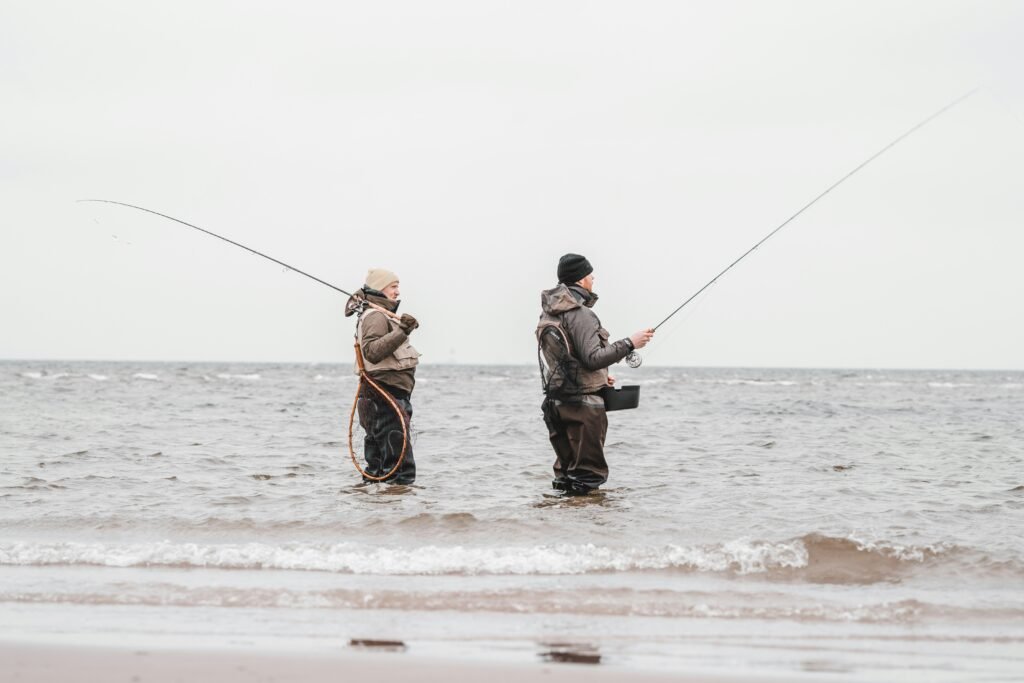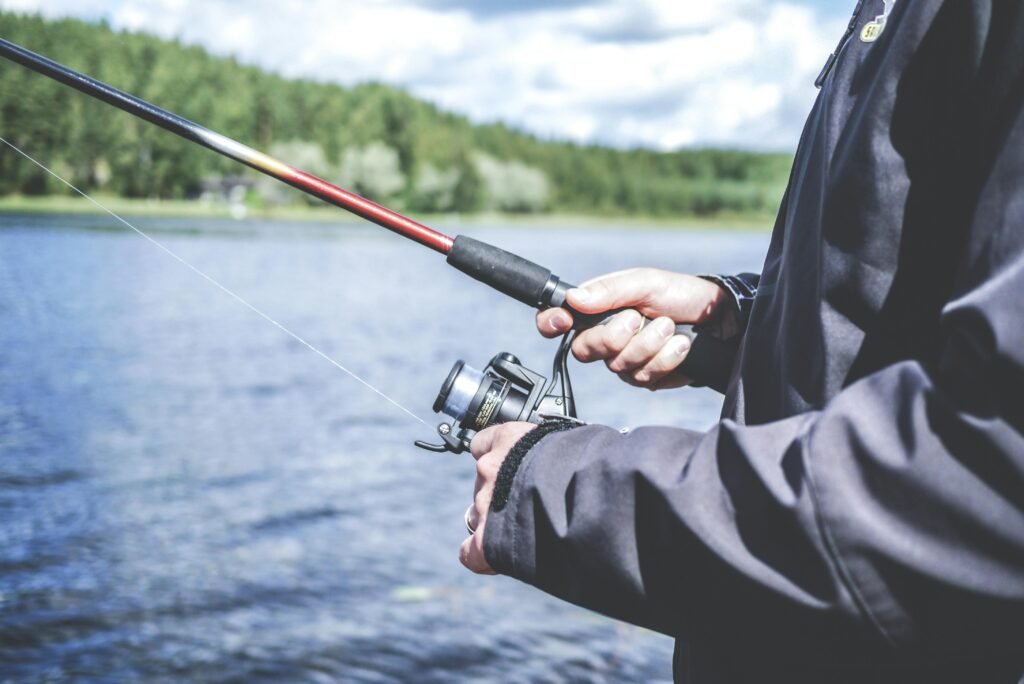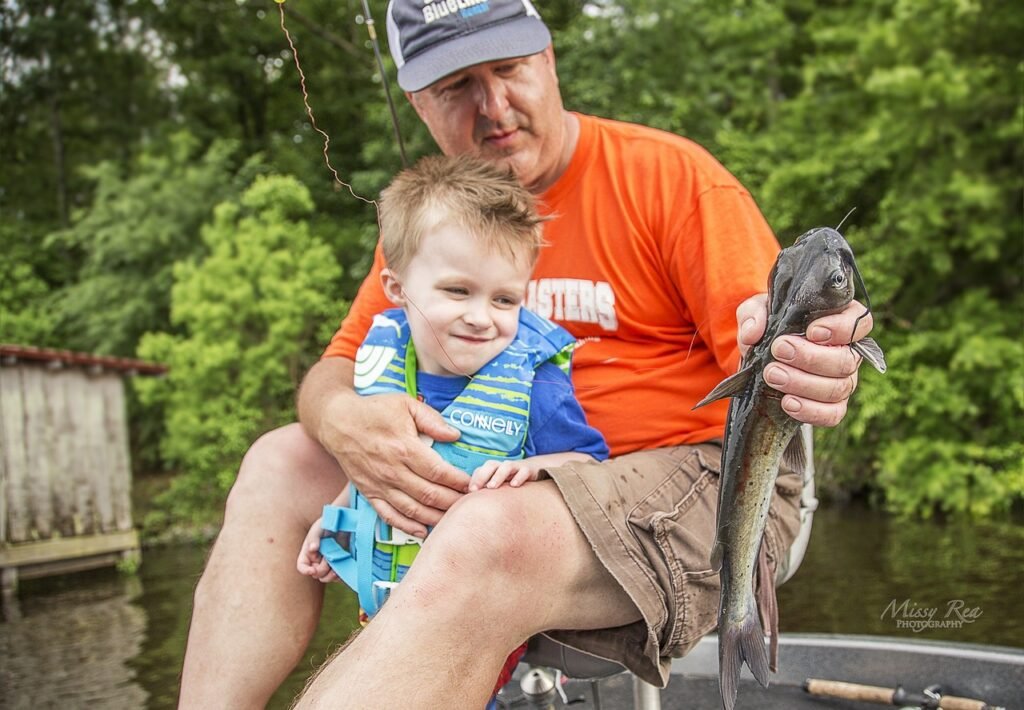As the crisp chill of winter descends upon lakes and rivers, many anglers pack away their gear, waiting for warmer days when the sun will once again warm the waters. However, for the dedicated few who brave the cold, winter can offer some of the most rewarding freshwater fishing experiences. These intrepid anglers don their warmest layers, strap on their waterproof boots, and head out to frozen shores, undeterred by the biting wind and icy conditions.
This is the story of cold water fishing, where patience, knowledge, and a bit of grit can lead to great success in chilly temperatures. Unlike the bustling activity of summer fishing, winter fishing requires a more strategic approach. The fish are less active, making them harder to find, but the stillness and quiet of a winter’s day can make the experience even more serene and fulfilling. From selecting the right bait to understanding the subtle movements of fish in cold water, every detail matters. Those who master the art of winter fishing often find themselves rewarded with not only a great catch but also a deep sense of accomplishment.
A Wintery Expedition Begins
The sun had just peeked over the horizon, casting a pale, golden light over the frozen landscape, illuminating the snow-covered ground and turning it into a sparkling wonderland. I could see my breath hanging in the air as I loaded my gear into the truck, each exhale a visible testament to the biting cold. My fingers, already tingling from the chill, fumbled with the latches, but the excitement of the day ahead kept me going. Today was not a day for the faint-hearted; it was a day for cold water fishing, a test of both skill and endurance.
Driving through winding roads flanked by frost-covered trees, I couldn’t help but feel a sense of adventure. The forest seemed almost magical in its winter coat, with branches heavy with snow and icicles glistening in the morning light. Winter fishing requires a different mindset, a willingness to adapt and persevere in less-than-ideal conditions. Memories of previous successful catches drove me forward, along with the hope of encountering something unexpected.
As I arrived at the lake, the glassy, ice-flecked water welcomed me with the promise of hidden treasures beneath its surface. The tranquility of the scene was mesmerizing, broken only by the occasional call of a distant bird and the crunch of snow under my boots. Setting up my gear, I felt a deep connection to the natural world around me, a sense of peace that only being in such a pristine environment can bring. The day was just beginning, and with it came the promise of new stories and the thrill of the catch.
Understanding Fish Behavior in Cold Water
Fishing in cold water is not just about enduring the elements; it’s about understanding how fish behave when temperatures drop. In winter, fish metabolism slows down, making them less active and their feeding patterns more sporadic. They seek out deeper waters where temperatures are more stable, often congregating around structures like submerged logs, rocks, and drop-offs. This means that locating fish can be a bit of a challenge, requiring knowledge of the water body and its hidden features.
With this in mind, I carefully selected my spot. I knew that patience would be key. Unlike the fast-paced action of summer fishing, cold water fishing demands a more measured approach. I cast my line and let it sink slowly, feeling the weight of the lure as it settled into the depths. The cold air nipped at my face, and I adjusted my hat and gloves to keep warm. As I waited, I thought about the quiet beauty of the winter landscape, the stark trees, and the stillness of the frozen banks.
Time seemed to stretch on as I maintained my focus, occasionally checking my surroundings for any signs of movement. The wind rustled the bare branches above, and I felt a sense of calm and anticipation. Fishing in cold water wasn’t just a test of skill, but also of endurance and respect for nature’s slower rhythms.
Choosing the Right Gear
Gear selection for cold water fishing is crucial. I opted for a medium-action rod with a sensitive tip to detect even the slightest bite, as fish in cold water can be quite subtle in their movements. My reel was spooled with a low-visibility, high-strength line to withstand the potential fight with a winter-weary, yet stubborn fish, ensuring I wouldn’t lose a catch due to a snapped line.
In terms of lures, I found that smaller, slower-moving baits work best. Jigs tipped with soft plastics or live bait like minnows can be particularly effective in these conditions. The key is to present the bait in a way that entices lethargic fish to strike, as their metabolism is slower in cold water. Slow and steady retrieves, with occasional pauses, mimic the natural movements of prey in cold water, increasing the likelihood of a bite.
Additionally, I made sure to dress warmly and layer appropriately to remain comfortable during long hours on the water. Wearing waterproof gear and insulated boots kept me dry and warm, allowing me to focus on fishing rather than the cold. Understanding the behavior of fish during the winter months and being prepared with the right gear and techniques makes all the difference in cold water fishing success.
The First Bite
Hours passed with only a few nibbles, each one bringing a fleeting moment of hope that quickly faded. The cold began to seep through my layers, chilling me to the bone, but the anticipation kept my spirits high. I adjusted my grip on the rod, trying to stay focused and patient.
Finally, a subtle tug on the line jolted me from my reverie. My heart raced as I set the hook gently, feeling the satisfying resistance of a fish on the other end. The tension in the line was a reassuring sign that I had a good catch.
Reeling in slowly, I could feel the fish putting up a decent fight despite the frigid water. Its movements were deliberate and strong, each pull a testament to its determination. As it broke the surface, the iridescent shimmer of a winter bass greeted me, its scales catching the light in a dance of color.
It wasn’t the largest catch, but it was a rewarding one. The experience was a testament to the rewards of perseverance and understanding the nuances of cold water fishing. Every moment of discomfort in the cold had been worth it for this single, beautiful fish. As I released it back into the water, I felt a deep sense of satisfaction and connection to the natural world around me.
Adapting to Changing Conditions
Winter weather can be unpredictable, and adaptability is essential for any angler. Throughout the day, the wind picked up, causing the bite to slow down significantly. The temperatures dropped, and the once calm waters turned choppy, making it challenging to keep my line steady. Observing these changes, I adjusted my tactics, switching to a heavier jig to maintain better contact with the bottom despite the turbulent conditions. This heavier setup allowed me to feel the subtle bites that might otherwise have been missed in the rougher waters.
By mid-afternoon, after a few hours of battling the elements, the wind had finally calmed. The sun peeked through the clouds, providing a brief respite from the cold. As the water settled, the fish became more active again, responding to the change in weather. Adapting to these fluctuating conditions is part of the challenge and the thrill of cold water fishing. Each adjustment, each decision, whether it’s changing the bait, the lure, or the depth, brings you closer to success in these chilly temperatures. It’s a constant dance with nature, requiring patience, skill, and a willingness to embrace the unexpected.
The Final Catch
As the sun dipped below the horizon, casting long shadows on the icy lake, I prepared for one last cast. The day’s efforts had been fruitful, with several respectable catches that made the cold bearable. The air was crisp, biting at my skin, but the thrill of fishing kept me warm. With a final flick of the wrist, I sent the lure arching through the air, landing with a soft plop in the water. Ripples spread out, mirroring the fiery hues of the setting sun on the glassy surface.
Moments later, another bite. This one felt different—heavier, more determined. The reel sang as the fish peeled line, and I knew I had hooked something special. My heart raced, each pull bringing a surge of adrenaline. The battle was intense, the fish darting beneath the surface with a tenacity that tested my skill and patience. But after a few heart-pounding minutes, I brought a beautiful, hefty trout to the surface. Its vibrant colors—iridescent greens and silvers flecked with red—stood in stark contrast to the winter landscape, a perfect end to a challenging yet rewarding day.
As I gently released the trout back into the water, watching it swim away with a burst of energy, I felt a profound sense of gratitude. The solitude of the frozen lake, the quiet moments of reflection, and the connection to nature had made this day more than just a fishing trip; it was a reminder of the simple joys that life has to offer.
Conclusion
Cold water fishing is not for everyone. It demands patience, resilience, and a deep understanding of fish behavior in chilly temperatures. But for those willing to brave the cold, it offers a unique and fulfilling experience. As I packed up my gear and headed home, I couldn’t help but feel a sense of accomplishment.
The winter months may be harsh, but they also hold the promise of quieter waters, fewer crowds, and the chance to connect with nature in a way that few others do. So, the next time the temperature drops and the lakes freeze over, remember that success in chilly temperatures is within reach for those who dare to seek it. Happy fishing!



